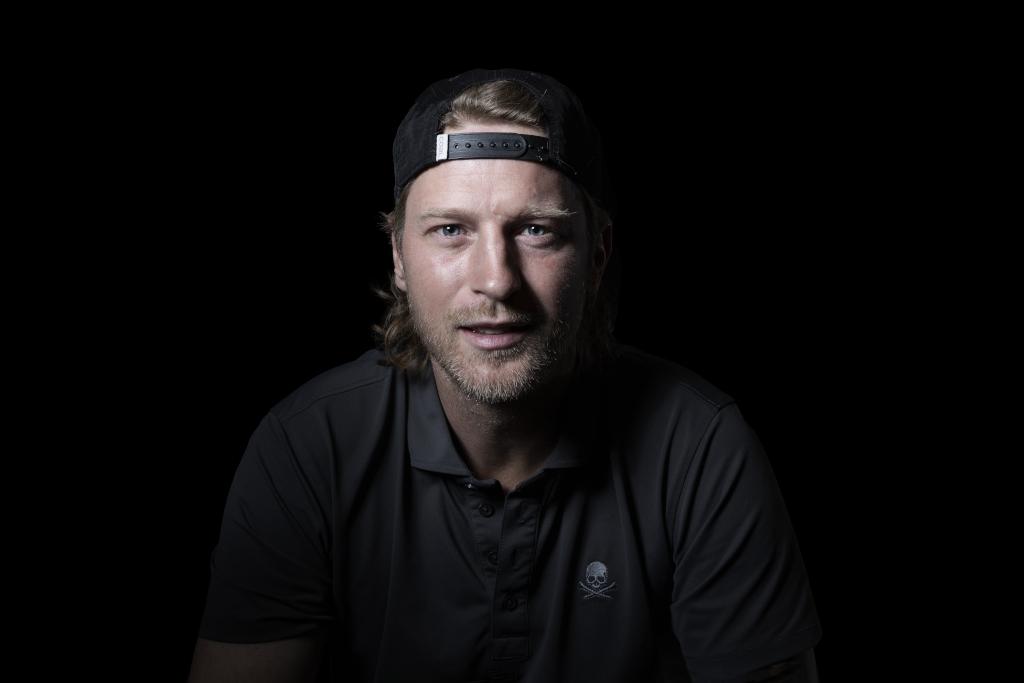The meaning of life
Aleš Hemský
ice hockey
The day was weird from the start. Sometimes you just feel it.
The coach sent us out for a morning skate and I thought I’d much rather not go; just rest instead. I should have said I wanted to take the morning off; that I’d be there for the game. It's quite common nowadays and like I said, everything felt off.
The hockey stick in my hand suddenly felt alien. My skates felt as if they were not properly sharpened. Every hockey player has experienced this sensation — you don’t feel comfortable in your own gear without any objective reason. It’s just… a hunch. But this hunch can become a problem in the back of your head. Especially for me. I’ve always been a gear freak.
I frustrated the Edmonton Oilers equipment managers. I needed my skates sharpened differently, based on that specific arena’s ice. I’d customize my skates and try out different fits. I'd send about 70 adjustments to the hockey-stick manufacturer and yet still before the game, I’d file the blade or shorten it at the top, simply because I felt it wasn’t right.
That’s why it’s sometimes better to skip the warm-up and come straight to the game. You avoid distracting thoughts about sharpening your skates or preparing three new hockey sticks.
Or four.
Or two.
This was on my mind all day. I was not in the right mindset to play.
And then we lost game 7 of the Stanley Cup Final against Carolina that day.
But I was young. So much had happened during that year and a half in my career that I didn’t care that much. I was 22 years old and everything had happened so fast. I had a fresh Czech title with Pardubice during the NHL lockout season. I had a gold medal from the World Championship with the Czech national team where I had the opportunity to play with the guys from the so-called “Golden generation.” And in the middle of the season – which for me ended with the latest possible Stanley Cup game – I had a bronze medal on my neck from the Olympics.
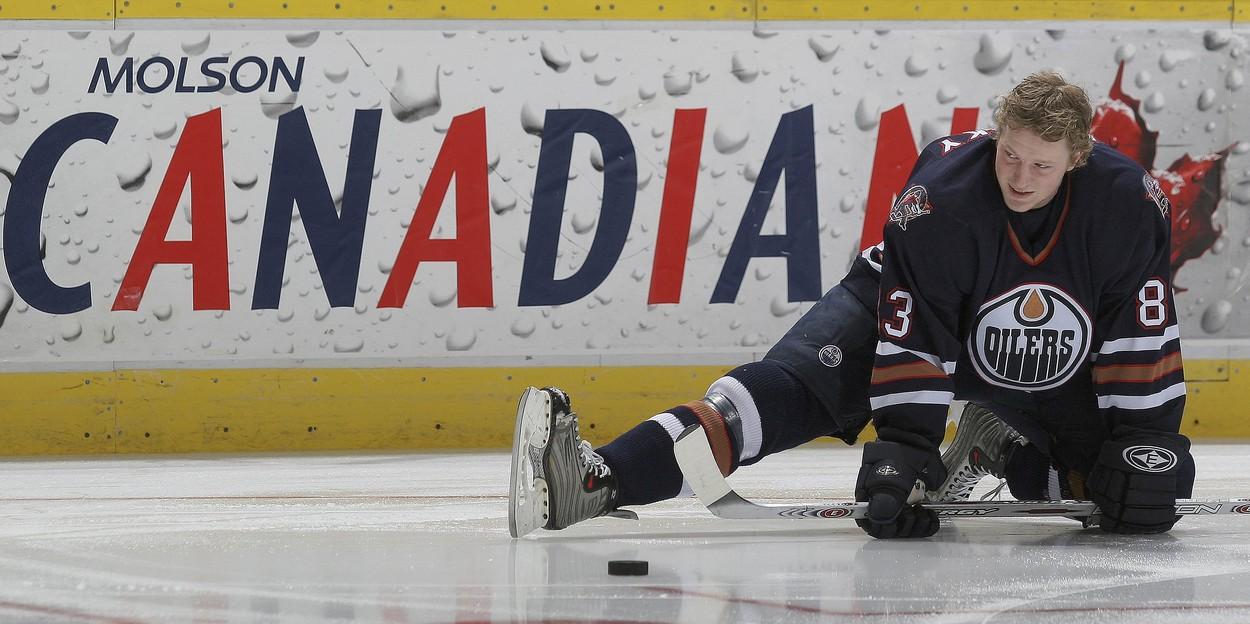
I thought that we’d win the Cup with the Oilers some other time. Never mind, let’s move on. I was tired from that intense period but I thought it would go on like this for my entire career. I felt untouchable; I could do whatever I wanted.
It wasn’t like that.
Early in the summer of 2006, as a world champion, Olympic medallist and Stanley Cup finalist, I didn’t realize that it was probably going to go downhill from there. There isn't much more a player can achieve in the hockey world.
I didn’t realize that apart from the successful playoff with Pardubice, where the coaches let us play our own way, I didn’t contribute that much to the other teams with which I had success. I was too young to add anything apart from a few goals and assists; to make a difference.
I was maturing more and more with each year and in my eyes, I was improving, but it didn’t lead to any success. The season after the finals we didn’t even make the playoffs with Edmonton.
Okay, shit happens, I thought. But we didn’t make it in the next season either. Even in the third one.
Suddenly, nine years had passed and my last NHL playoff game was still a Game 7 loss to Carolina.
I didn’t give the situation much thought. In one of the games back in Edmonton, I got hit by a loose puck on the bench. Somewhere between the temple and the ear.
It hurt but I finished that game.
But during our flight home, I began to feel as if I was sailing on a ship in rough seas. I felt sick as if I were to puke. My eyes were darting back and forth and I was losing my balance. I almost didn’t make it to the stadium in the morning. I didn’t think it was a good idea to sit behind a wheel and drive a car while the whole world around me was spinning, but somehow, I managed and once I got to the dressing room I rushed to the doctor.
By then, I already had some experience with concussions. Getting ambushed on the ice was nothing exceptional in the NHL at that time. Even though it was annoying, I could at least recognize the symptoms and knew when to take a break and skip a game. But this was different.
This was really weird.
The old Edmonton arena had nothing around it. The hotel in which I was staying stood right in front of it so you just had to cross the parking lot.
I spent the days in my room, getting VHS tapes downstairs at the front desk. My food was all crap.
I was 19 years old, I had just signed a contract with the Oilers and I thought this was what my life in the NHL would be like. Shortly after, however, general manager Kevin Lowe called me and said they wanted me to live with the owner of the club.
At first, I didn’t want to do it. I felt like it was just because they wanted to keep an eye on me because I was young and wild, but I agreed to at least go check it out.
What I saw amazed me. The house was a regular castle. It even had a little tower.
There was a pool in the basement, a jacuzzi, a bar, fridges full of drinks and food. We were greeted by an assistant and Bruce Saville himself, a philanthropist and a former owner of the Oilers, welcomed me into his office where he had memorabilia from Wayne Gretzky on display. He gave me a tour of the house.
“This floor would be yours,” he told me.
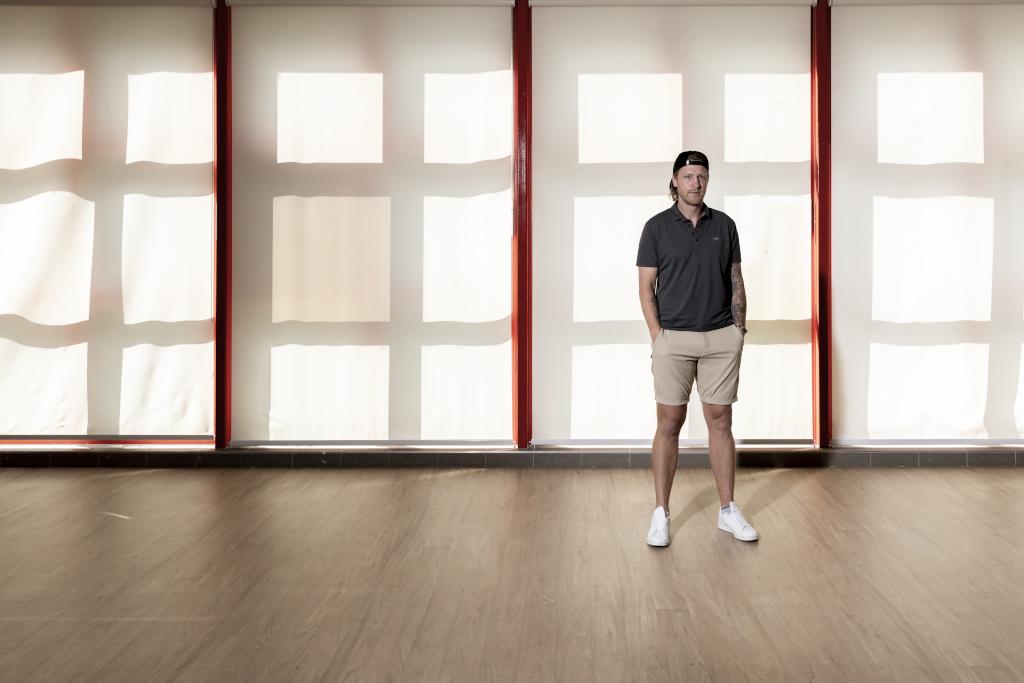
And so I said yes. I was a little worried about all the luxury, but then again, who wouldn’t want to try it? I figured I’d give it a try and it was one of the best decisions in my life. Bruce became like a second dad to me. He did absolutely everything for me. I could ask for anything I wanted. I didn’t pay rent or food. I felt at home and my only concern was playing hockey. If not for that, I’m sure I would never have become the player I was. I would have struggled alone in the group of older players, trying to fit in. But Bruce created an environment for me that felt like home.
Just like when I was a kid. All I did was focus on hockey. I was lucky.
At the same time, I never felt any pressure from Bruce to behave a certain way or repay his generosity on the ice. He has a good heart. He saw a shy European boy and tried to help him feel comfortable on his team.
More than anything, Bruce was a fan. All he cared about was how the game went. Whenever we talked, it was always about every-day things. He even tolerated my occasional parties. If it was too much, his assistant would throw us out, but it was all good. Even that one time we woke him up with noise from the garden and he got out, sleepy and in his bathrobe, and thought that the guy riding the bison statue was his son who lived somewhere else.
“Kennedy, what are you doing?” he said as he squinted into the darkness.
“Bruce, it’s alright, it’s one of ours.”
“Oh, alright. Have fun then, boys…”
When the NHL banned owners from housing their own players due to violations of the salary cap, Bruce still asked me if I wanted to stay at his place; that we would figure something out. I thanked him, but I knew that I needed to start taking care of myself so I could grow as a person as well.
It should be no surprise that I never wanted to leave Edmonton.
The club was a family. Bruce, general manager Kevin Lowe and coach Craig MacTavish raised me. Literally raised me. They were handed a boy with maybe some hockey skills who was scared of everything around him and they protected me. I’m not sure if there ever was someone as lucky as me in such a position at the start of their career.
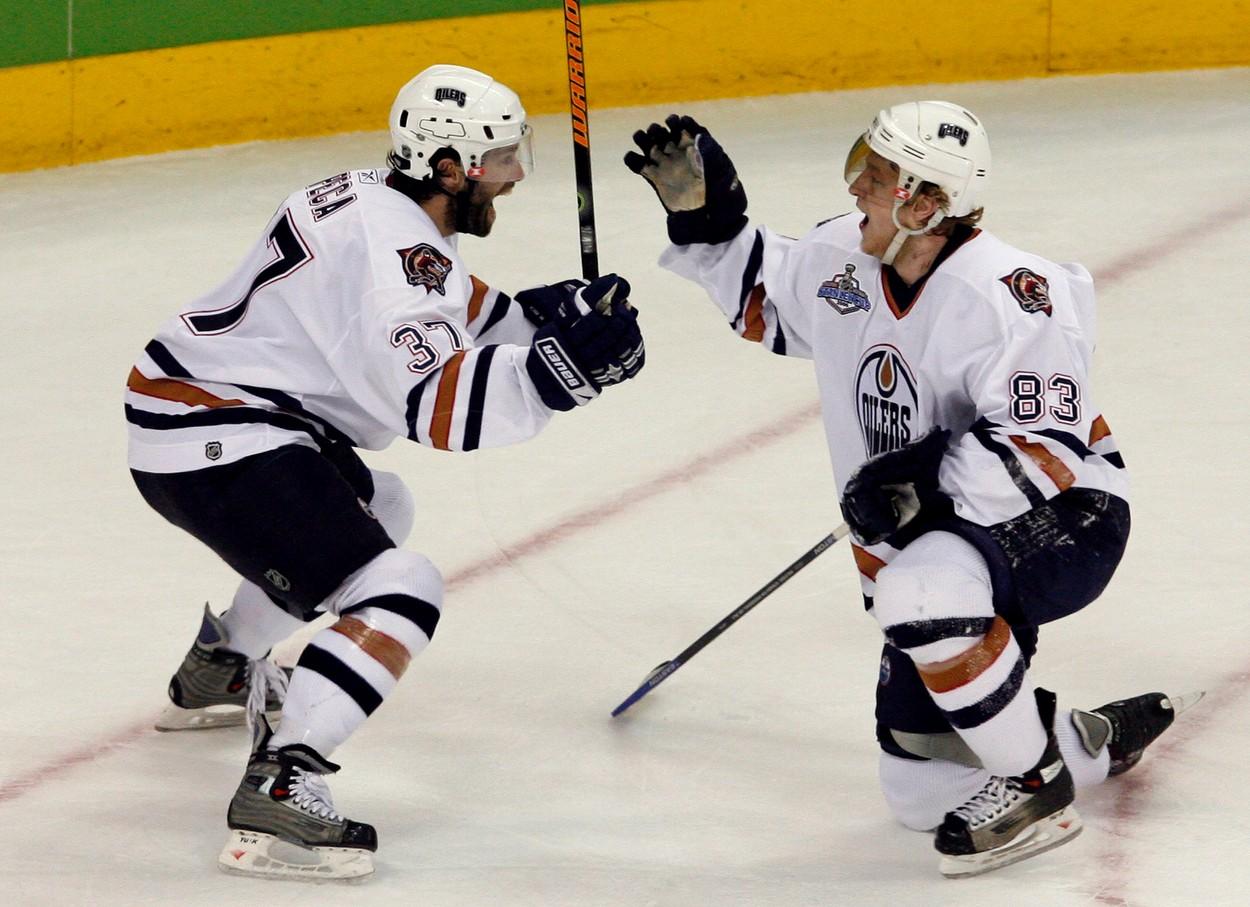
I’ll never forget how Kevin, who won six Stanley Cups as a player, called me into his room before my first playoff. We sat down and talked for an hour about what was to come so I'd be ready. It was as if he was talking to his son. He didn't try to force something on me; to tell me that they expected goals from me when they drafted me in the first round. He told me because he cared about me playing my best game. He cared about me feeling good.
I know that’s how he worked with everyone on the club. He was a good leader.
When you read the news about how bad things were with the Oilers, you thought, 'Those people have no idea what it’s really like.'
I should have left anyway. Five years before I left. I should have done it like Ryan Smyth, who just decided to go and left. I could have. The options were there, but I told myself I couldn’t do this to them. I was grateful to all of them for helping me in the beginning and making me happy. It was my first club. I didn’t know anything else.
To be such a good guy in the NHL is not a good thing. Not when you’re playing a lot of games which don’t really matter and you know that you need something else.
Team doctors had no other explanation than that it was another concussion. They tried and tried but couldn’t figure out any other explanation for why my whole world was spinning. We were flying to New York where our doctor knew a specialist. I travelled with the team and paid him a visit.
Just one examination was enough for him to know what was wrong. I laid down, tilted my head backwards and just as my eyes started spinning, he knew.
Vertigo.
It was indirectly connected to my concussions because the constant hits had affected a centre in my head which coordinated the sensations of sight, hearing and touch. To this day, whenever I’m sitting on a plane with headphones on, I feel weird. As soon as I turn off one of the senses, the rest don’t work together and I get sick.
Back then, I rested for some time and once the acute problems disappeared, I played again. But I never managed to shed this strange feeling. It was as if it was still back there somewhere in my head like I was still one blow away from being in huge trouble.
In the end, trouble found me.
Only members of the Klub Bez frází can read further
For 199 CZK a month awaits you the plot of this and many other inspirational stories of czech athletes.

Vstoupit do Klubu
Inspirativní příběhy vyprávěné výjimečnými sportovci, jedinečné texty od novinářských osobností plné překvapivých souvislostí, podcasty nabité informacemi a setkání s osobnostmi. Pohled na sportovní svět tak, jak ho jinde nenajdete.
Did you like the story? Please share it.


